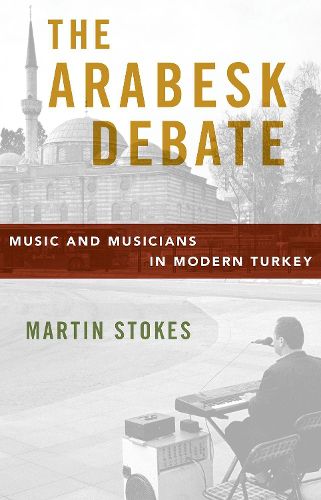Readings Newsletter
Become a Readings Member to make your shopping experience even easier.
Sign in or sign up for free!
You’re not far away from qualifying for FREE standard shipping within Australia
You’ve qualified for FREE standard shipping within Australia
The cart is loading…






The Arabesk Debate describes the way in which Turkish musicians discuss, dispute, and attribute meanings to their music. Martin Stokes examines the debate over ‘Arabesk’, a musical genre popular throughout Turkey. His book is an ethnographic study of urban music-making in Istanbul, focusing on the activities of professional musicians and their audiences in the city.Dr. Stokes looks at the Arabesk debate in the context of state cultural politics, Islam, and the experience of urbanization in Turkey. Within this context he discusses the role of the media, music education, the technology of popular music-making, the construction of gender and the emotions through musical performance, and concepts of musicianship in Turkish society. In looking at the interplay between national cultural politics and urban music-making at a local level, this book challenges both ‘mass culture’ theory and more general assumptions about the study of music in society.
$9.00 standard shipping within Australia
FREE standard shipping within Australia for orders over $100.00
Express & International shipping calculated at checkout
The Arabesk Debate describes the way in which Turkish musicians discuss, dispute, and attribute meanings to their music. Martin Stokes examines the debate over ‘Arabesk’, a musical genre popular throughout Turkey. His book is an ethnographic study of urban music-making in Istanbul, focusing on the activities of professional musicians and their audiences in the city.Dr. Stokes looks at the Arabesk debate in the context of state cultural politics, Islam, and the experience of urbanization in Turkey. Within this context he discusses the role of the media, music education, the technology of popular music-making, the construction of gender and the emotions through musical performance, and concepts of musicianship in Turkish society. In looking at the interplay between national cultural politics and urban music-making at a local level, this book challenges both ‘mass culture’ theory and more general assumptions about the study of music in society.